With images of horror and anguish from the Mumbai blasts weighing heavily on him, Prime Minister Manmohan Singh is expected to tell leaders of the G-8 countries to come out with "cohesive" action and a "credible strategy" to effectively combat global terrorism.
NEW DELHI: With images of horror and anguish from the Mumbai blasts weighing heavily on him, Prime Minister Manmohan Singh is expected to tell leaders of the G-8 countries to come out with "cohesive" action and a "credible strategy" to effectively combat global terrorism.
Singh, who leaves for St Petersburg on Sunday on a three-day visit for the G-8 Summit, will also seek to leverage mounting international outrage to compel Pakistan to honour its commitment to end terrorism and violence directed against India.
Leaders from the G-8 countries comprising the United States, Japan, Germany, Britain, Italy, France, Russia and Canada have strongly condemned the serial blasts in Mumbai suburban trains that left 200 dead and over 700 injured.
Singh, who visited Mumbai on Friday, has warned that terrorists were trying to spread their tentacles across the country and that terror modules were "instigated, inspired and supported" by elements across the border without which they could not act with such devastating effect.
The prime minister will have meetings with US President George W Bush, Russian President Vladimir Putin, Chinese President Hu Jintao and other leaders on Monday.
India, along with China, Brazil, South Africa and Mexico, have been invited for the summit as outreach countries. This will be the first occasion that Russia would be hosting a G-8 Summit. Congo and Kazakhstan will participate in their capacity as chair of the African Union and of the CIS respectively.
At his meeting with Bush, Singh is expected to press for early implementation of the July 18 agreement on civilian nuclear cooperation.
The Singh-Bush interaction will come close on the heels of the US House of Representatives' International Relations Committee and the Senate Foreign Relations Committee giving their nod to the nuclear deal which would pave the way for nuclear supplies to Indian reactors.
India and the International Atomic Energy Agency had last week held "productive" talks on the proposed safeguards agreement that has to be put in place to allow international community to resume nuclear trade with New Delhi.
During the summit, the G-8 leaders are expected to make efforts to break the deadlock over the Doha round of WTO negotiations.
The recent round of negotiations in Geneva ended in a logjam over the issue of industrialised nations cutting domestic subsidy for agriculture and developing nations reducing tariff on industrial goods.
Iran's nuclear programme, education, disease prevention and a massive expansion of nuclear power generation in member countries are on the agenda of the summit.
An action plan for global energy security, envisaging a network of nuclear power plants in Group countries and sale of reactors to developing countries, is also likely to be drawn up at the summit.
Russia has indicated that among the issues that will be focused on during its presidency would be counter terrorism and proliferation of weapons of mass destruction.
Settlement of regional conflicts, development of the global economy, finance and trade as well as protection of environment are also expected to figure during the deliberations.
The summit was preceded by a meeting of G-8 energy ministers who highlighted the importance of international cooperation for the development of low carbon technologies and innovative energy technology solutions with environmental benefits.
Last month, G-8 finance ministers spoke of lack of access to modern energy services being a barrier to economic growth and told the World Bank to explore the possibility of new instruments to tackle the problem of energy poverty.
Health and education ministers also met separately in the run-up to the summit that is expected to also take up issues relating to world trade, globalisation and global challenges to security.
At Singh's meeting with Putin, the challenge posed by terrorism is expected to come under special focus. Strongly condemning the Mumbai blasts, Putin has called for severe punishment to the perpetrators.
The prime minister will also attend the first meeting under the trilateral mechanism with Putin and Hu to discuss the positive role the three countries can play to safeguard global peace.
Ahead of the summit, British Prime Minister Tony Blair has advocated that India and the other four outreach countries be invited into the G-8 club to broaden and deepen the grouping.
![submenu-img]() Woman walks on the streets of Tokyo in saree, viral video shows people’s reaction
Woman walks on the streets of Tokyo in saree, viral video shows people’s reaction![submenu-img]() Blinkit offering ‘free dhaniya’ with vegetable orders, people now asking for free…
Blinkit offering ‘free dhaniya’ with vegetable orders, people now asking for free…![submenu-img]() Kartam Bhugtam: Shreyas Talpade-starrer is a riveting dive into the unknown
Kartam Bhugtam: Shreyas Talpade-starrer is a riveting dive into the unknown![submenu-img]() Why Australians walk barefoot in public: Here’s the reason
Why Australians walk barefoot in public: Here’s the reason![submenu-img]() Richa Chadha says Heeramandi co-star Sharmin Segal being trolled for her performance is 'audience’s right'
Richa Chadha says Heeramandi co-star Sharmin Segal being trolled for her performance is 'audience’s right'![submenu-img]() Meet PhD wife of IIT graduate hired at Rs 100 crore salary package, was fired within a year, he is now…
Meet PhD wife of IIT graduate hired at Rs 100 crore salary package, was fired within a year, he is now…![submenu-img]() Meet woman not from IIT, IIM or NIT, cracked UPSC exam in first attempt with AIR...
Meet woman not from IIT, IIM or NIT, cracked UPSC exam in first attempt with AIR...![submenu-img]() Maharashtra Board Results 2024: MSBSHSE class 10th, 12th results soon, know how to check results via SMS
Maharashtra Board Results 2024: MSBSHSE class 10th, 12th results soon, know how to check results via SMS![submenu-img]() Meet Indian genius who became world’s 'youngest' surgeon at 7, worked in IIT for...
Meet Indian genius who became world’s 'youngest' surgeon at 7, worked in IIT for...![submenu-img]() Meet Kashmir boy, who is JEE topper, wants to pursue Computer Science, he aims to clear...
Meet Kashmir boy, who is JEE topper, wants to pursue Computer Science, he aims to clear...![submenu-img]() DNA Verified: Is CAA an anti-Muslim law? Centre terms news report as 'misleading'
DNA Verified: Is CAA an anti-Muslim law? Centre terms news report as 'misleading'![submenu-img]() DNA Verified: Lok Sabha Elections 2024 to be held on April 19? Know truth behind viral message
DNA Verified: Lok Sabha Elections 2024 to be held on April 19? Know truth behind viral message![submenu-img]() DNA Verified: Modi govt giving students free laptops under 'One Student One Laptop' scheme? Know truth here
DNA Verified: Modi govt giving students free laptops under 'One Student One Laptop' scheme? Know truth here![submenu-img]() DNA Verified: Shah Rukh Khan denies reports of his role in release of India's naval officers from Qatar
DNA Verified: Shah Rukh Khan denies reports of his role in release of India's naval officers from Qatar![submenu-img]() DNA Verified: Is govt providing Rs 1.6 lakh benefit to girls under PM Ladli Laxmi Yojana? Know truth
DNA Verified: Is govt providing Rs 1.6 lakh benefit to girls under PM Ladli Laxmi Yojana? Know truth![submenu-img]() Aishwarya Rai Bachchan turns heads in intricate black gown at Cannes, walks the red carpet with injured arm in cast
Aishwarya Rai Bachchan turns heads in intricate black gown at Cannes, walks the red carpet with injured arm in cast![submenu-img]() Laapataa Ladies' Poonam aka Rachna Gupta looks unrecognisable in viral photos, amazes with jaw-dropping transformation
Laapataa Ladies' Poonam aka Rachna Gupta looks unrecognisable in viral photos, amazes with jaw-dropping transformation![submenu-img]() In pics: Taarak Mehta Ka Ooltah Chashmah actress Deepti Sadhwani dazzles in orange at Cannes debut, sets new record
In pics: Taarak Mehta Ka Ooltah Chashmah actress Deepti Sadhwani dazzles in orange at Cannes debut, sets new record![submenu-img]() Ananya Panday stuns in unseen bikini pictures in first post amid breakup reports, fans call it 'Aditya Roy Kapur's loss'
Ananya Panday stuns in unseen bikini pictures in first post amid breakup reports, fans call it 'Aditya Roy Kapur's loss'![submenu-img]() Remember Harsh Lunia? Just Mohabbat child star, here's how former actor looks now, his wife is Bollywood's popular...
Remember Harsh Lunia? Just Mohabbat child star, here's how former actor looks now, his wife is Bollywood's popular...![submenu-img]() Haryana Political Crisis: Will 3 independent MLAs support withdrawal impact the present Nayab Saini led-BJP government?
Haryana Political Crisis: Will 3 independent MLAs support withdrawal impact the present Nayab Saini led-BJP government?![submenu-img]() DNA Explainer: Why Harvey Weinstein's rape conviction was overturned, will beleaguered Hollywood mogul get out of jail?
DNA Explainer: Why Harvey Weinstein's rape conviction was overturned, will beleaguered Hollywood mogul get out of jail?![submenu-img]() What is inheritance tax?
What is inheritance tax?![submenu-img]() DNA Explainer: What is cloud seeding which is blamed for wreaking havoc in Dubai?
DNA Explainer: What is cloud seeding which is blamed for wreaking havoc in Dubai?![submenu-img]() DNA Explainer: What is Israel's Arrow-3 defence system used to intercept Iran's missile attack?
DNA Explainer: What is Israel's Arrow-3 defence system used to intercept Iran's missile attack?![submenu-img]() Kartam Bhugtam: Shreyas Talpade-starrer is a riveting dive into the unknown
Kartam Bhugtam: Shreyas Talpade-starrer is a riveting dive into the unknown![submenu-img]() Richa Chadha says Heeramandi co-star Sharmin Segal being trolled for her performance is 'audience’s right'
Richa Chadha says Heeramandi co-star Sharmin Segal being trolled for her performance is 'audience’s right'![submenu-img]() Meet only Indian actress whose film is competing for top prize at Cannes; not Aishwarya, Deepika, Kiara, Priyanka, Alia
Meet only Indian actress whose film is competing for top prize at Cannes; not Aishwarya, Deepika, Kiara, Priyanka, Alia![submenu-img]() How two heroines beat Rajinikanth, Vijay, Dhanush to give Tamil cinema's biggest hit of 2024; low-budget film earned...
How two heroines beat Rajinikanth, Vijay, Dhanush to give Tamil cinema's biggest hit of 2024; low-budget film earned...![submenu-img]() Once bigger than Shah Rukh, Saif, this star rivalled Sanjay Dutt, one mistake ruined his career, died young suddenly
Once bigger than Shah Rukh, Saif, this star rivalled Sanjay Dutt, one mistake ruined his career, died young suddenly![submenu-img]() Woman walks on the streets of Tokyo in saree, viral video shows people’s reaction
Woman walks on the streets of Tokyo in saree, viral video shows people’s reaction![submenu-img]() Why Australians walk barefoot in public: Here’s the reason
Why Australians walk barefoot in public: Here’s the reason![submenu-img]() People in this country compete to see who’s best at doing nothing, here's why
People in this country compete to see who’s best at doing nothing, here's why![submenu-img]() Viral video: Influencer dressed as 'Manjulika' dances on crowded road, internet reacts
Viral video: Influencer dressed as 'Manjulika' dances on crowded road, internet reacts![submenu-img]() Viral video: Baby elephant receives 'Z-category security' during family nap in Tamil Nadu reserve
Viral video: Baby elephant receives 'Z-category security' during family nap in Tamil Nadu reserve


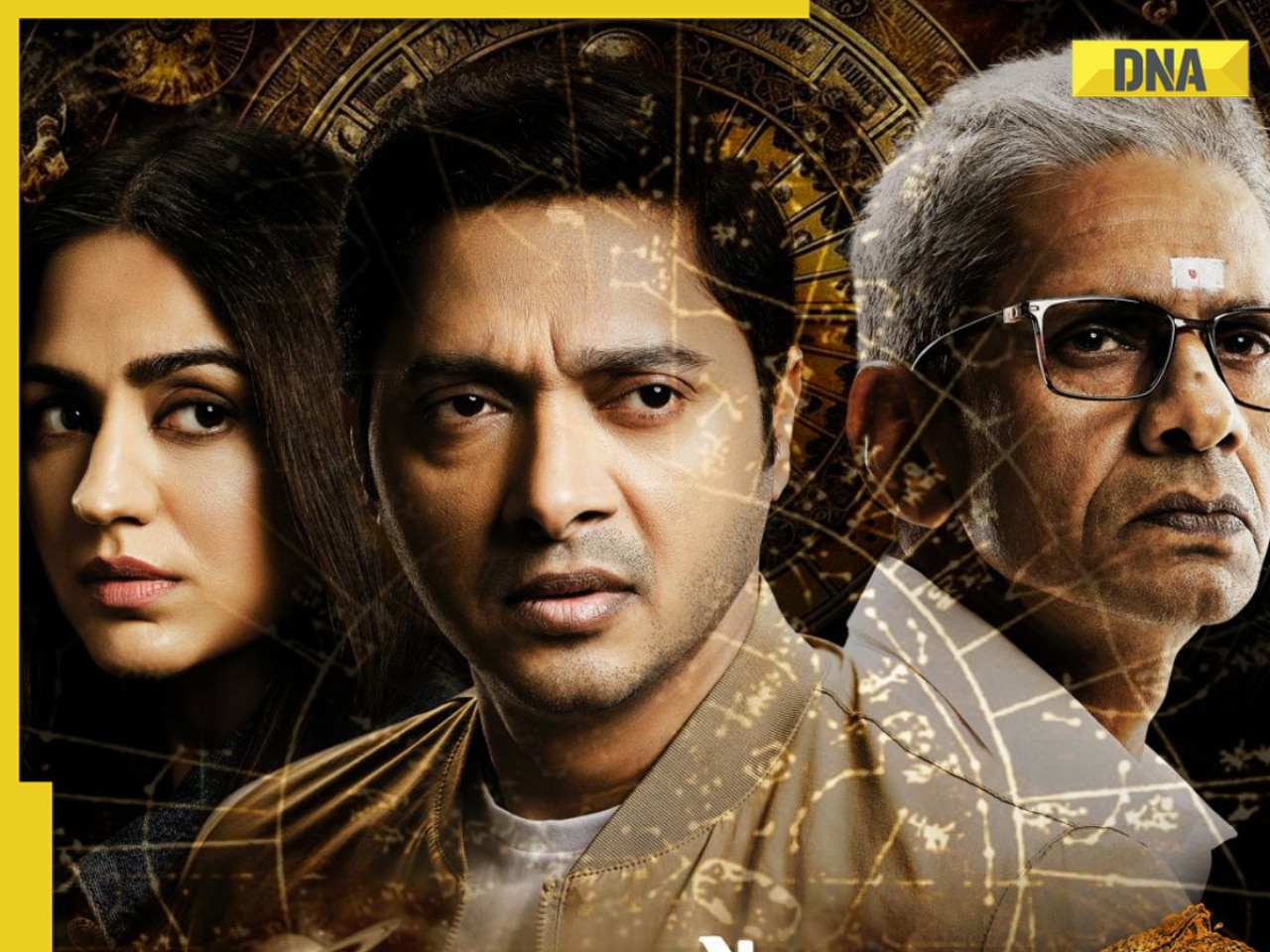









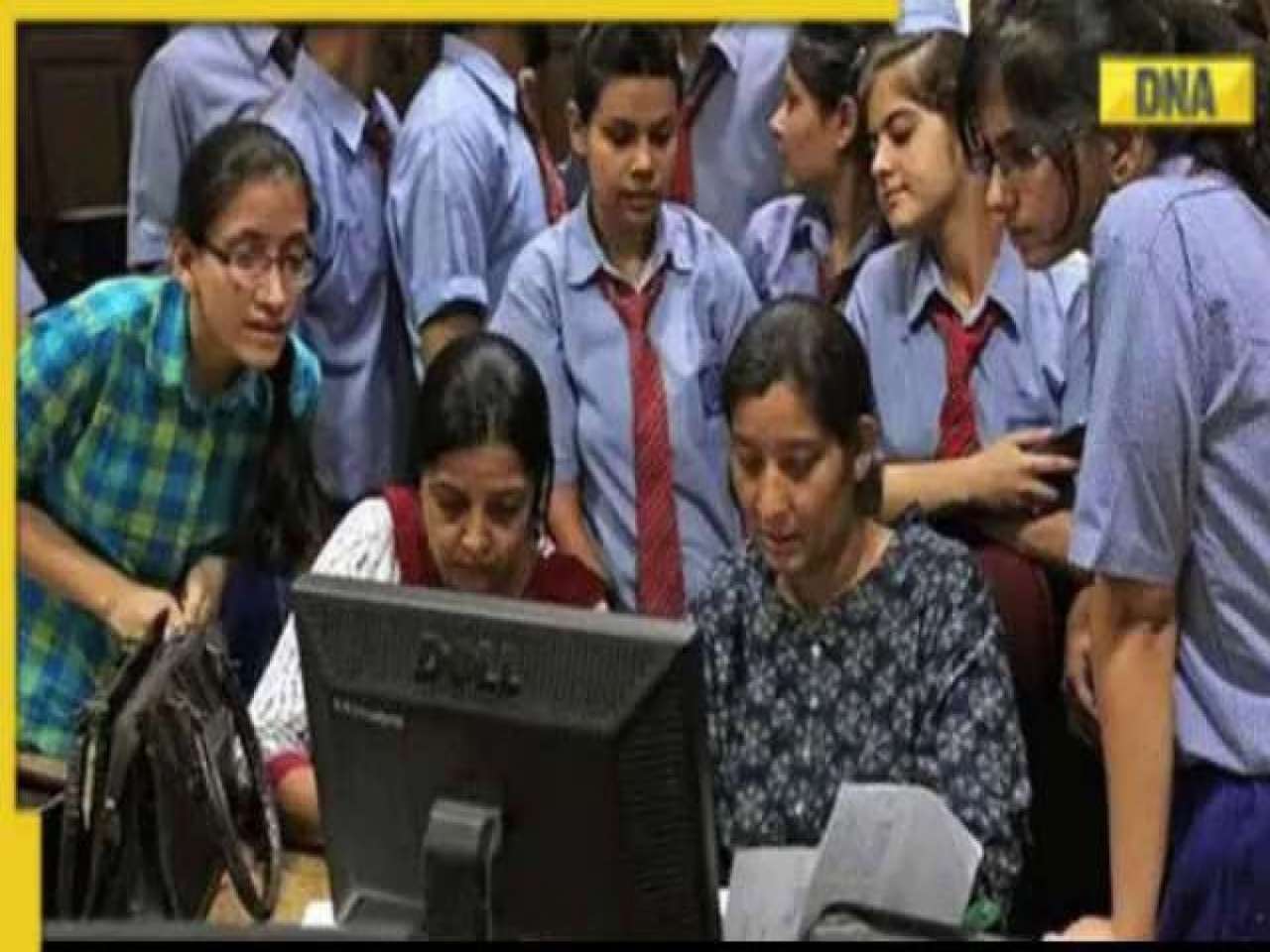
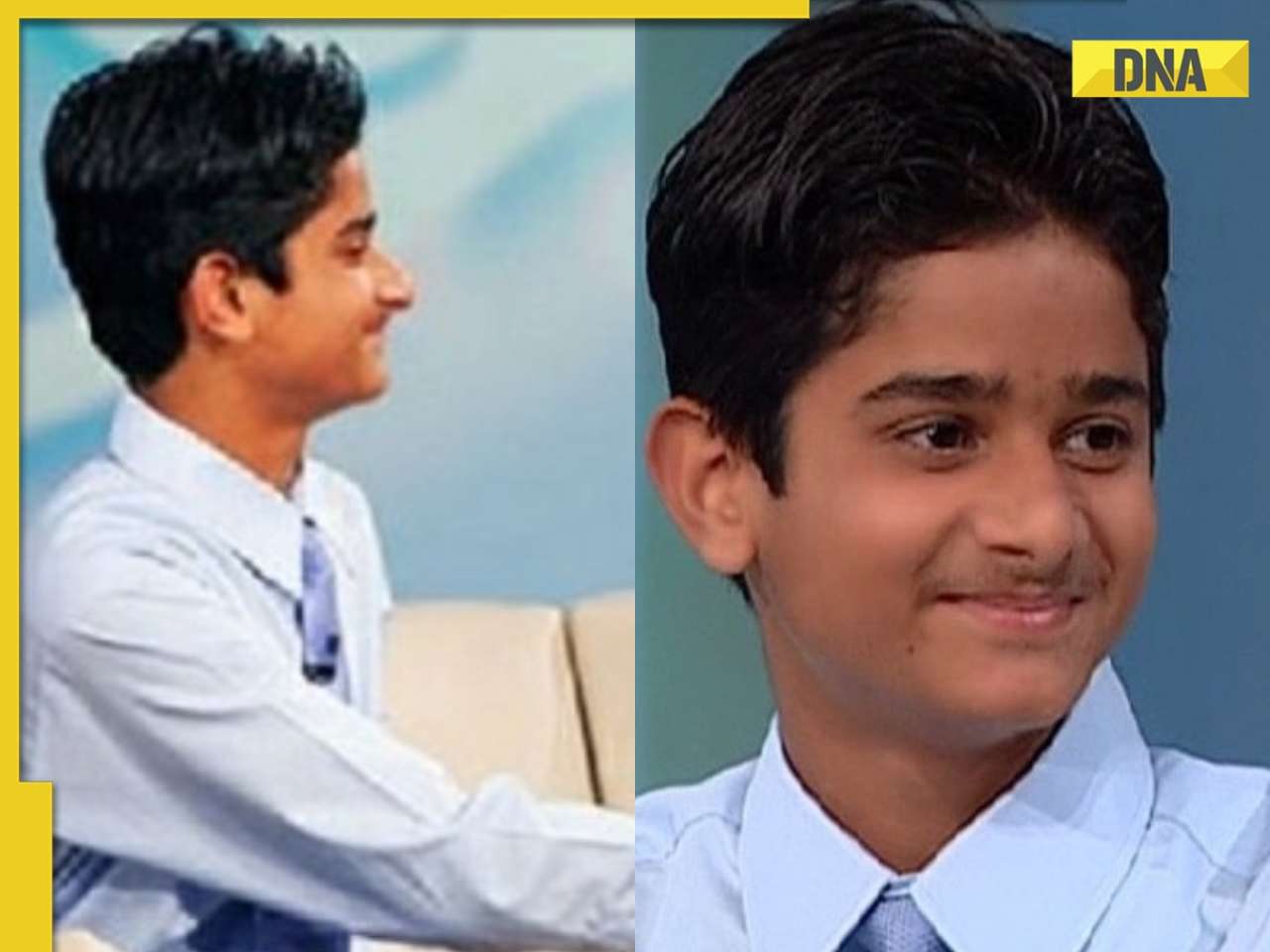
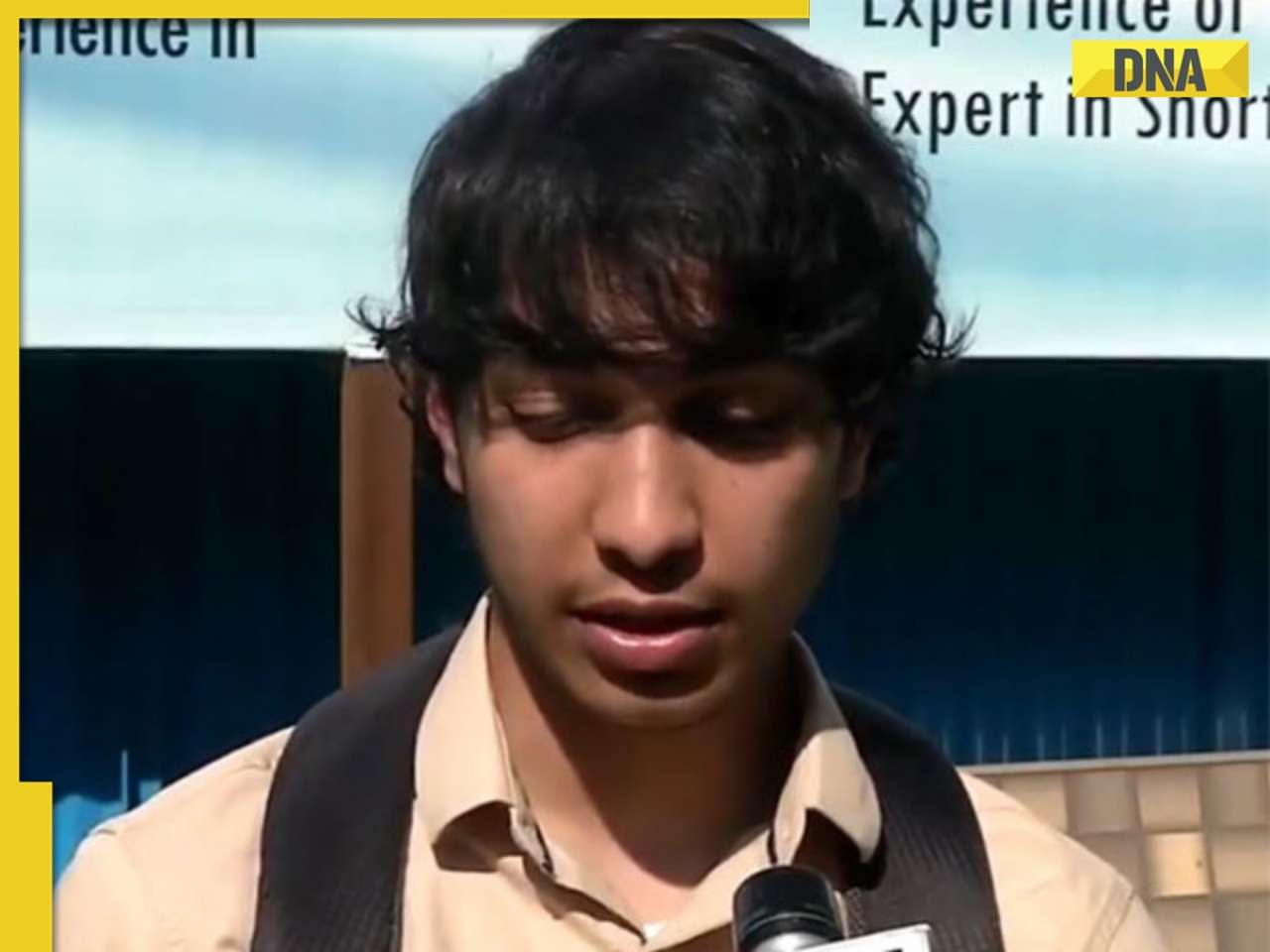


















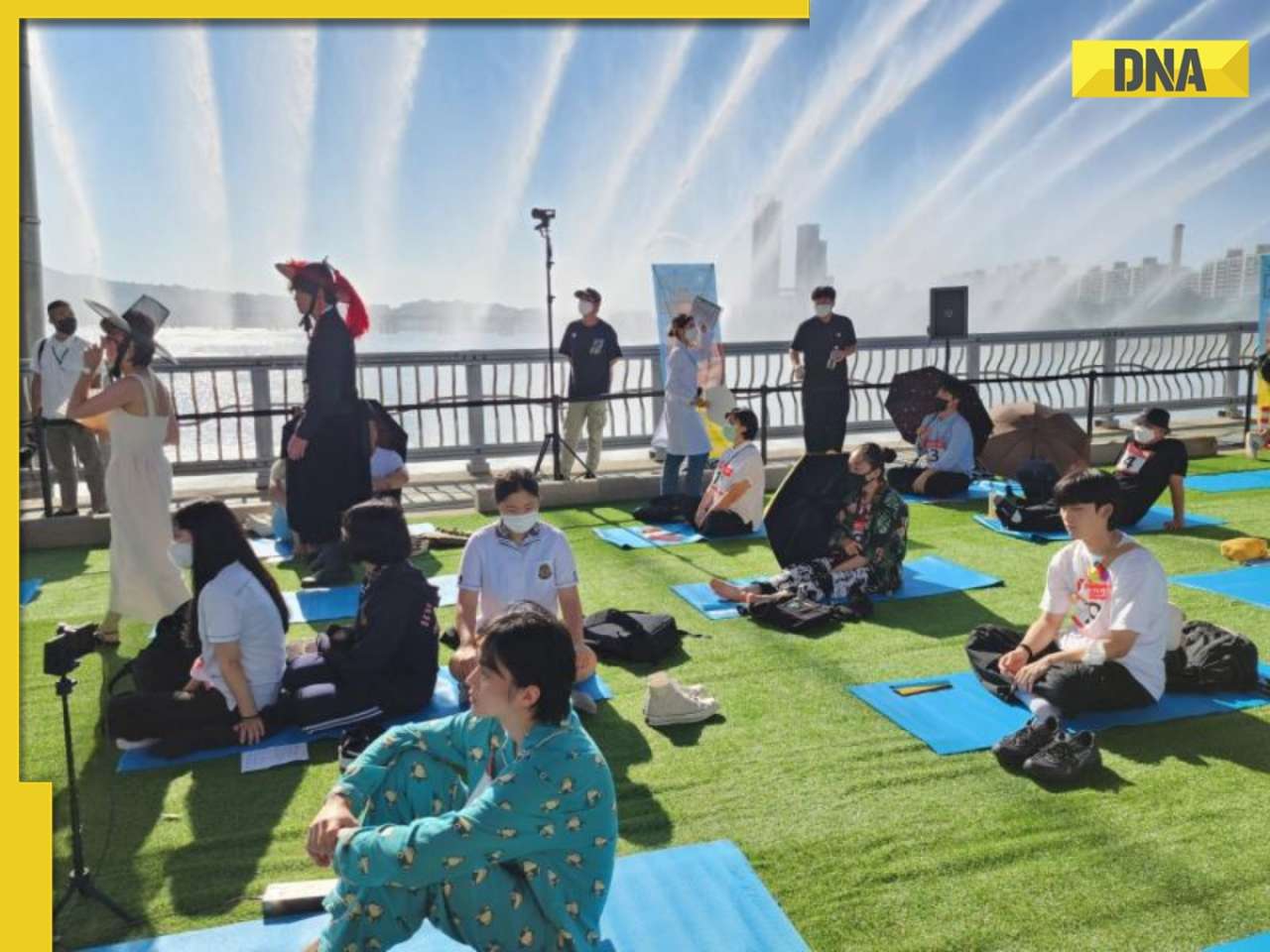
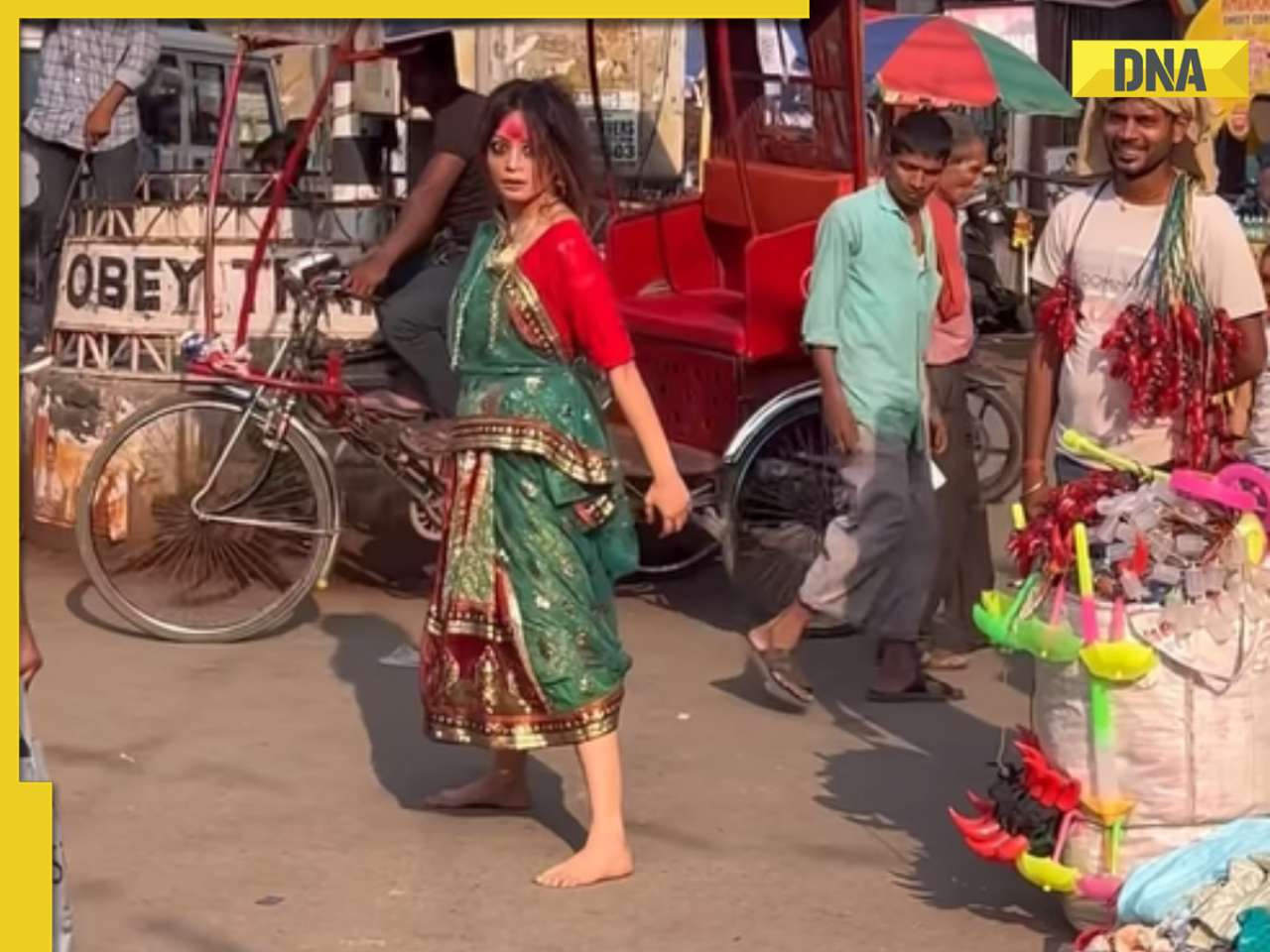
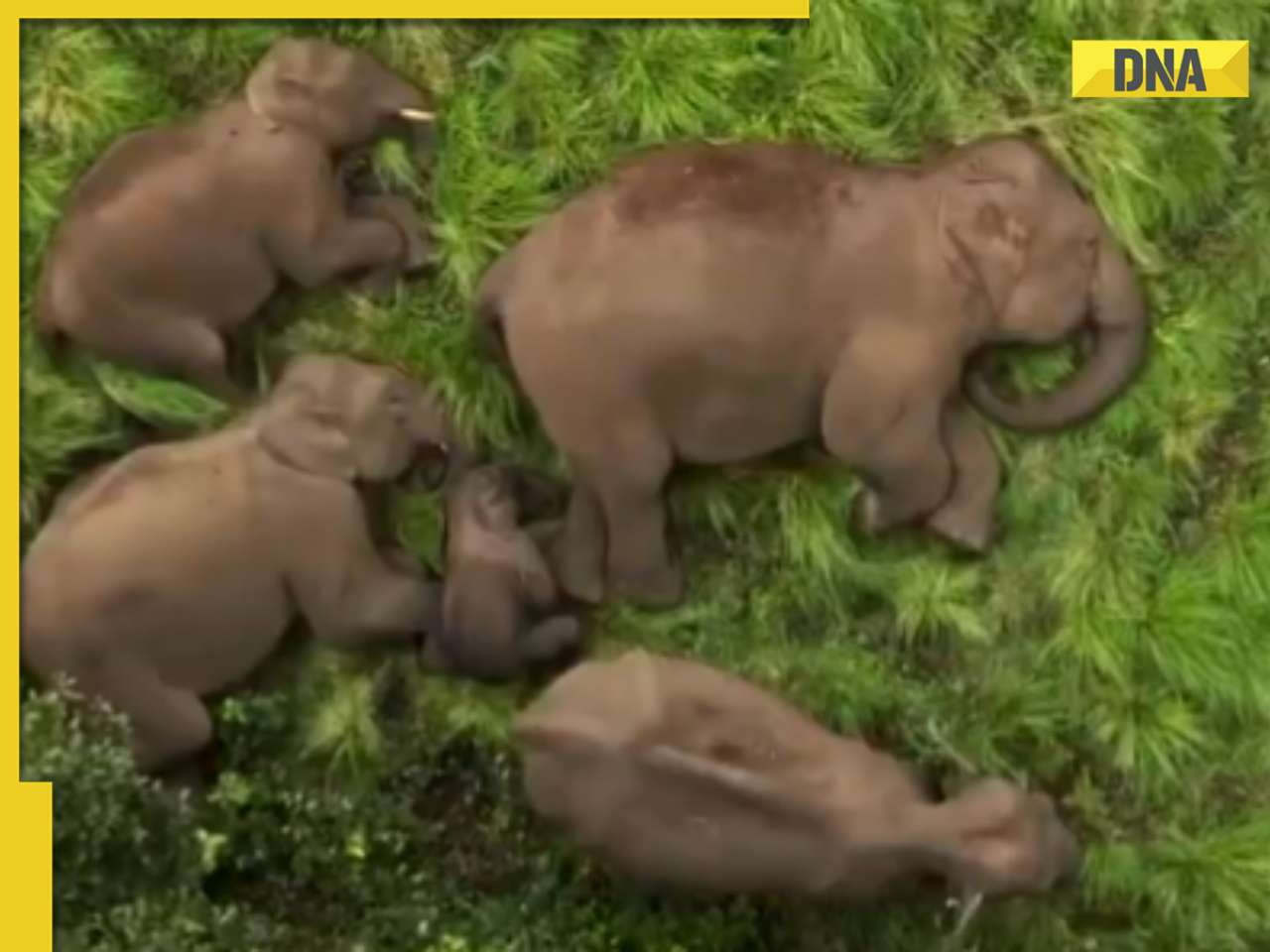




















)
)
)
)
)
)